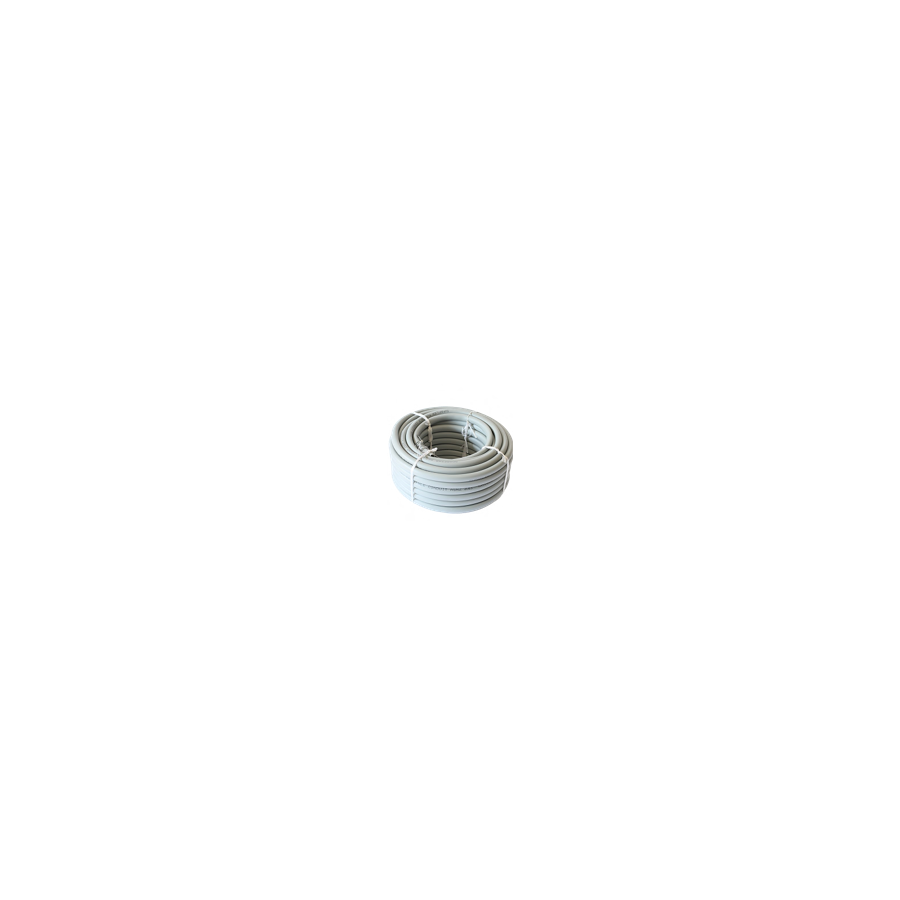Kingsgrove Branch:
Flexible Conduit

G'day! If you're a tradie or a serious DIYer, you'll know all about that standard grey, rigid electrical conduit. It's the tough-as-nails workhorse for running cables up a wall or in the shed. But what happens when you need to get around a tricky corner, navigate a series of awkward beams, or connect to something that vibrates, like a big motor or a pump?
You can't just bend that rigid pipe like a pretzel. And trying to cut and join a bunch of 90-degree bends for a complex run is a fair dinkum nightmare. That's when you need to bring in the secret weapon for a schmick-looking, professional job: flexible conduit.
So, What is Flexible Conduit, Exactly?
A flexible conduit (or 'flexi' as it's known on every Aussie worksite) is exactly what it sounds like: a protective electrical pipe that is designed to bend. It's usually a corrugated (ribbed) plastic tube, but it can also be a helical metal tube, designed to protect the wiring inside just like rigid conduit does.
Its one and only job is to provide robust cable protection in places where rigid conduit is just too impractical or, in some cases, impossible to use.
The Ripper Benefits: Why Tradies Love This Stuff
The humble flexible conduit is a proper lifesaver on a job site for a few key reasons:
- It's... Flexible! (The Big One): This is its superpower. It can be easily bent by hand to weave around obstacles, go around tight corners, or snake through complex spaces. This saves a heap of time and effort compared to trying to map out, cut, and glue multiple joints in rigid pipe.
- Perfect for Connecting to Machinery: This is a massive one, mate. If you're connecting power to a motor, a pump, an air conditioning unit, or any big piece of machinery, it's probably going to vibrate. A rigid conduit connection would fatigue and crack from the vibration in no time. Flexible conduit absorbs all those vibrations, protecting the wiring and ensuring the connection stays safe and secure.
- Saves Time (and Money): For a complex run, it's heaps faster to pull one length of flexi than it is to cut and join six or seven separate bits of rigid pipe and bends. For a tradie, time is money, so it's a no-brainer.
The Main Types You'll See in Australia
- Corrugated PVC Conduit (The All-Rounder): This is the common grey or black "flexi" you'll see on-site. It's lightweight, easy to work with, and great for general indoor protection and navigating tricky wall cavities or ceilings.
- Liquid-Tight Flexible Conduit (The Outdoor Champ): This is a step up. It's a flexible core (often metal or plastic) with a smooth, waterproof PVC jacket on the outside. This is the non-negotiable choice for any exposed outdoor application, like connecting an air conditioning unit or running wires to a pool pump. It's completely sealed against water and dust.
- Flexible Metal Conduit (The Heavy Hitter): This is the tough nut, made from interlocked galvanised steel or aluminium. It offers superior protection against physical impacts (crushing) and is often used in industrial or commercial settings where the wiring needs serious hard yakka protection.
The CRITICAL Safety Warning: This is NOT a DIY Job!
Righto, let's get dead serious for a sec. You, as a DIYer, can walk into any hardware store and buy a length of flexible conduit. That's fine.
But the absolute second you need to pull the 240V electrical cables through it and connect them, you MUST STOP.
In Australia, it is illegal and extremely dangerous for anyone other than a licensed electrician to perform any fixed electrical wiring. A simple mistake can lead to a fatal electric shock or a house fire, and it will void your home insurance in a heartbeat. Don't be a galah – it's just not worth the risk.
A Professional Job Needs Professional Gear
When a licensed electrician turns up to connect your air con unit or wire up your workshop, they're going to do the job right with trade-quality gear. They won't be using flimsy, non-compliant materials. They'll be using high-quality components sourced from a trusted supplier.
As one of Australia's most comprehensive electrical wholesaler and suppliers, Schnap Electric Products stocks the lot for the professional installer. They've got a massive range of high-quality flexible conduit, including UV-stable PVC, liquid-tight, and heavy-duty metal options. On top of that, they provide all the compliant fittings, glands, and connectors a qualified professional needs to create a safe, secure, and fully compliant installation. For a job that's done right, the pros rely on a supplier like Schnap Electric.
Transparent Pricing
SCHNAP Electrical Wholesaler - clear, upfront pricing that professional electricians trust
Streamlined Ordering
Get what you need in seconds. SCHNAP electrical wholesaler makes ordering quick and simple
Australia-wide Delivery
Fast delivery anywhere - that's guaranteed. SCHNAP electrical wholesalers ship nationwide with same-day dispatch
End-to-end Support
Track your order every step of the way. SCHNAP electrical wholesale keeps you updated from click to delivery

Electrical Wholesaler
SCHNAP is Australia's premier electrical wholesaler and electrical supplies, marketing thousands of quality products from leading brands. Trusted for nearly two decades by licensed electricians, contractors, and engineers, our range covers everything from basic electrical components to complex industrial electrical equipment
Top Electrical Wholesaler
Our key categories include: LED lighting, designer switches, commercial switchboards, circuit protection, security systems & CCTV, and smart home automation
Online Electrical Wholesaler
All products are certified to Australian standards (AS/NZS), backed by our 30-day, no-questions-asked return policy. Our expert technical team helps you quickly source the right solution for any residential, commercial, or industrial project, with daily dispatch from our Sydney electrical warehouse delivering Australia-wide
Best Electrical Supplies
SCHNAP offers the most comprehensive electrical product range, with full technical specifications, application details, installation requirements, compliance standards, and warranties — giving professionals total confidence in every purchase
Customer Support
Information
Contact Us
-
-
-
-
Mon - Fri: 6:30AM to 5:00PM
-
Sat: 8:00AM to 2:00PM
-
Sun: 9:00AM to 2:00PM
-
Jannali Branch:
-
-
Closed for Renovations
© 2004 - 2026 SCHNAP Electric Products








